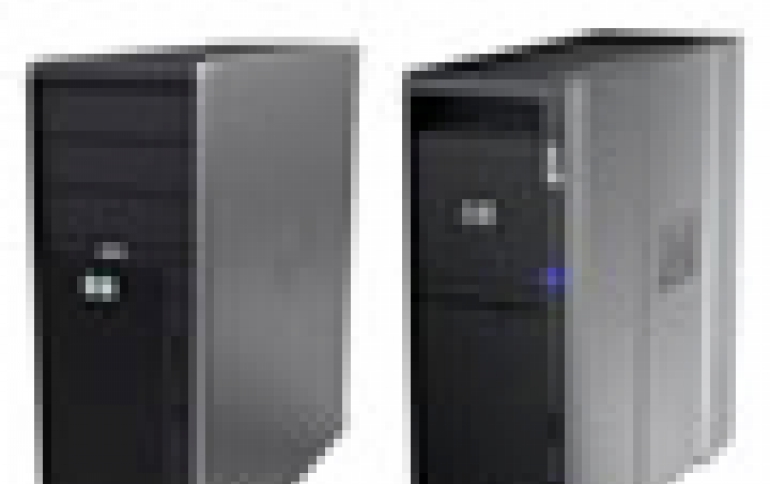
The Workstation Market Remained Sluggish in Q2'12
The results from the workstation market's first quarter were disappointing, as it marked the first two consecutive quarters of negative growth since 2008.
Alex Herrera, Senior Analyst at Jon Peddie Research (JPR), reports that around 883 thousand workstations shipped worldwide in the quarter, down 3.8% from the quarter prior and 2.6% from Q2'11.
While the quarter proved disappointing, the JPR does not detect any systemic weakness unique to the market. Rather, Herrera sees the market buffeted by the same winds that are affecting most other IT segments. "Like any other, this market will rise and fall with the tempo of the overarching economy. With the economy stubborn to shake its lethargy, and with new IT form factors vying for users' eyeballs, all PC-related industries are having trouble making headway as of late. And while we feel more bullish about the prospects of professional-caliber computing than most other related markets, the market for workstations certainly isn't immune to the malaise affecting the broader PC industry."
Herrera points out that good reasons for optimism remain in the long term. "Workstations look to continue to outpace other PC-class devices moving forward. This arena is attracting both new suppliers and new consumers. Most notably, more potential buyers - both in the form of lower-budget CAD users and Apple emigrants - should continue to increase the TAM (total available market). Moreover, technology innovation in the industry is moving at a brisk pace, increasing the platform's ROI proposition and fueling replacement cycles."
With the self-inflicted injury of a year ago behind it (when then-CEO Leo Apotheker put the fate of HP's entire PC business unit in question), HP has steadied the workstation ship and begun to press on, despite less-than-stellar market conditions. Responsible for 41.3% of units shipped in the fourth quarter, HP holds control over the workstation market, clearly separating itself from Dell at 32.5%, JPR said.
The related market for professional graphics hardware did not fare any better than the market for workstations. Vendors Nvidia and AMD shipped 1.1 million units in the second quarter, 6.7% less than in Q1 and 12.5% less than the year prior. Nvidia continues to hold a dominant market position over its primary rival in this space.
While the quarter proved disappointing, the JPR does not detect any systemic weakness unique to the market. Rather, Herrera sees the market buffeted by the same winds that are affecting most other IT segments. "Like any other, this market will rise and fall with the tempo of the overarching economy. With the economy stubborn to shake its lethargy, and with new IT form factors vying for users' eyeballs, all PC-related industries are having trouble making headway as of late. And while we feel more bullish about the prospects of professional-caliber computing than most other related markets, the market for workstations certainly isn't immune to the malaise affecting the broader PC industry."
Herrera points out that good reasons for optimism remain in the long term. "Workstations look to continue to outpace other PC-class devices moving forward. This arena is attracting both new suppliers and new consumers. Most notably, more potential buyers - both in the form of lower-budget CAD users and Apple emigrants - should continue to increase the TAM (total available market). Moreover, technology innovation in the industry is moving at a brisk pace, increasing the platform's ROI proposition and fueling replacement cycles."
With the self-inflicted injury of a year ago behind it (when then-CEO Leo Apotheker put the fate of HP's entire PC business unit in question), HP has steadied the workstation ship and begun to press on, despite less-than-stellar market conditions. Responsible for 41.3% of units shipped in the fourth quarter, HP holds control over the workstation market, clearly separating itself from Dell at 32.5%, JPR said.
The related market for professional graphics hardware did not fare any better than the market for workstations. Vendors Nvidia and AMD shipped 1.1 million units in the second quarter, 6.7% less than in Q1 and 12.5% less than the year prior. Nvidia continues to hold a dominant market position over its primary rival in this space.













